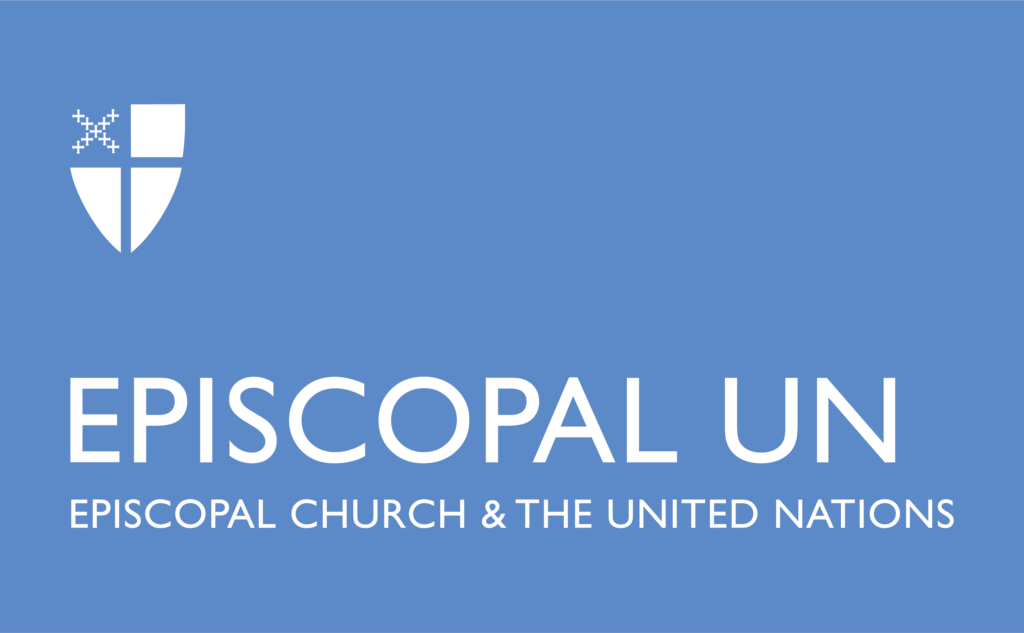Striving for Justice and Peace: Episcopal Climate Action at #COP23
Things are in full service at the annual UN climate conference in Bonn, Germany! Eleven members of the Presiding Bishop’s delegation to COP23 have been present and engaged in worship, advocacy, and networking.
This blog post will give you a quick look at our advocacy efforts. You can learn more about our worship here, and keep an eye out for another post soon about our networking and relationship building!
Advocacy
We join our partners from across the Anglican Communion in advocating on behalf of climate-impacted Anglicans worldwide. We encourage robust climate mitigation policies that will limit global temperature rise to 1.5 degrees, and contributions to the Green Climate Fund that will benefit developing nations. This advocacy includes not only talking to formal negotiators and diplomats, but also praying for climate action and lifting up examples of environmental stewardship from across the Episcopal Church.
As part of these advocacy efforts, Bishop Marc Andrus spoke on a #WeAreStillIn panel at the U.S. Climate Action Zone. Bishop Marc recalls,
“After President Trump declared that he would pull the United States out of the Paris Agreement, an alliance of cities, states, regions and businesses rapidly emerged to take responsibility for keeping the US NDC. “We Are Still In” means that a coalition of civil society and businesses can keep our commitment to the Paris Agreement even without the federal government.
“Beginning just as rapidly, the Episcopal delegation representing the Presiding Bishop began to put forward the idea that faith bodies could join with the climate-change promises of We Are Still In. Faithful individuals and communities have long been working strongly for the healing of the planet. We Are Still In is calling faith bodies to raise their efforts to greater collaboration, greater effort.
“We also believe that as the Church we carry our spiritual values into climate action, and above all we carry our prayerful faith in God, whose love and providence contains all our efforts, with all our limitations.”
COP23 has two zones: The Bonn Zone, which is a giant quasi-public exhibit space, and the Bula Zone, where formal advocacy climate negotiations take place. Although non-government organizations such as the Presiding Bishop’s delegation cannot vote during the negotiations, we are credentialed to enter the Bula Zone, observe, and talk with the member-state diplomats. (Bonn is our host city, and “Bula” means hello in Fiji, the island nation threatened by rising sea level that holds this year’s conference presidency. Say “Bula!” to God’s creation, to Episcopal climate advocacy, and to our Anglican sisters and brothers across the world!)
Three of our team members have access to this Bula Zona: Bishop Marc, Jack Cobb of the Episcopal Church Office of Government Relations (OGR) during week one, and Lynnaia Main, the church’s representative to the United Nations, during week two.
Lynnaia has spent the week meeting with international diplomats in and outside the Bula Zone. She’s had some important interactions with the delegation from Tuvalu, whose citizens are facing the dire consequences and pastoral needs of sea level rise:
“At breakfast at my hotel I met the Prime Minister of Tuvalu and the Tuvalu delegation. I was able to share with them a one-page fact sheet describing our Church’s policies on climate change, and ask them how we might help them.
“One of the Tuvalese delegates affirmed that our positions are exactly what is needed, and asked that, above all, we stress the urgency of climate action and ambition. Tuvalu will be underwater within 50 years, he said. A fact that is well-known at the UN already, but every bit helps. There is no time to waste! They also asked us to pray, and we have been delighted to do so.”
Last week, Jack, OGR’s Domestic and Environmental Policy Advisor, took a break from his own role in the Bula Zone to record a great Facebook Live video about Episcopal advocacy and the role of individual parishes in addressing climate change, which you can watch here. Jack said, “Climate change was collected by millions and millions of collected actions over time, and the only way to solve it will be collective action over time… To learn more about the Episcopal Church’s advocacy on climate change and a variety of other issues, I encourage you to visit advocacy.episcopalchurch.org!”


